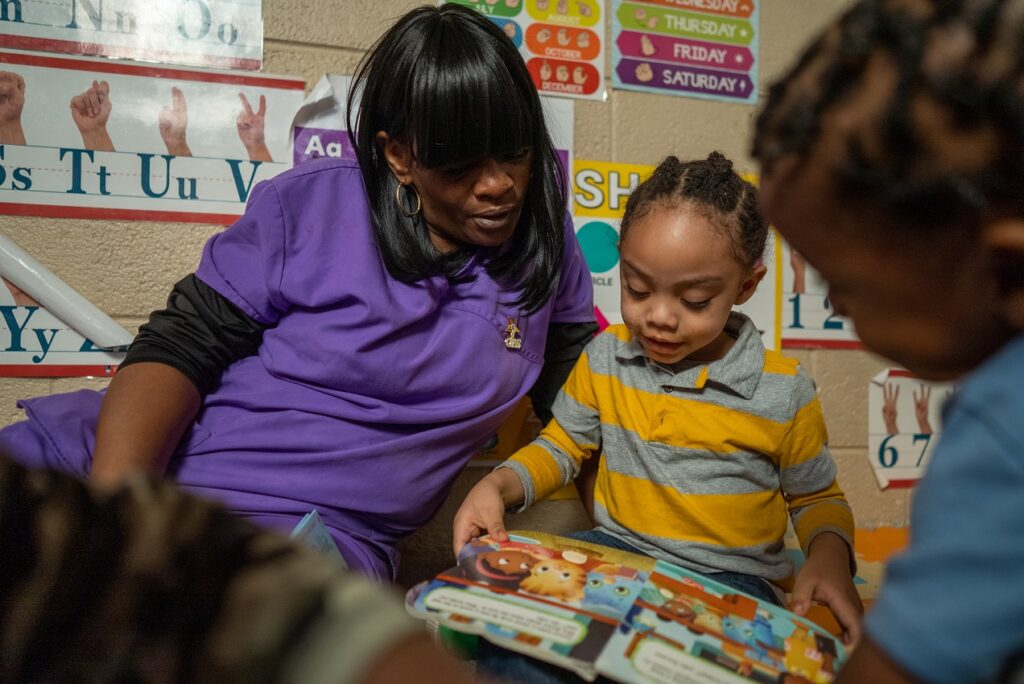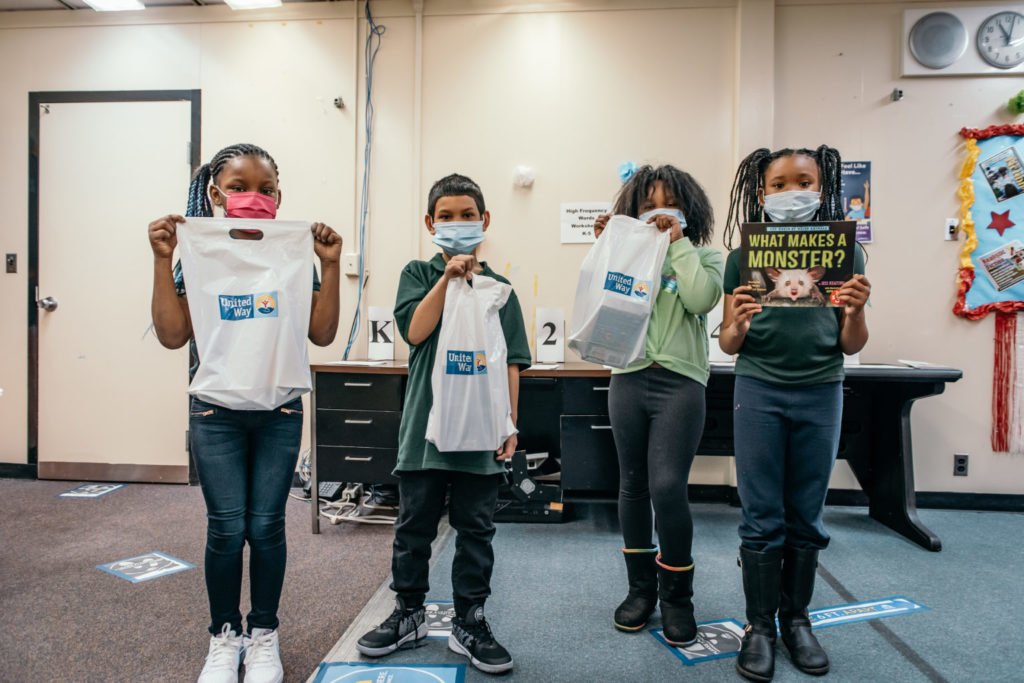Tips for Helping Children of Any Age Build a Love of Reading
Published on March 14, 2023 in Literacy
If you’re an adult who enjoys reading, you probably have one or more caring adults to thank—people who read to you when you were a baby or a young child.
This month, which is National Reading Month, United Way is offering tips for guardians to help children through 5th grade grow a lifelong love of books.
Only 5% of fourth graders in Detroit are proficient readers, according to the National Assessment for Educational Progress (NAEP). Through initiatives such as Read United and My Home Library, United Way is striving to close the literacy gap across our region.
“Research shows that engaging children to read at home positively affects their performance in school,” says Tiffany Mousel, manager of literacy initiatives at United Way for Southeastern Michigan. “Our goal is to have at least 100 books in every child’s personal library, and to help parents make time for 20 minutes of reading at home every day.”
INFANTS TO FOUR-YEAR-OLDS

As soon as you can safely hold your baby and a book at the same time, make a supportive environment for regular reading.
1. Create a cozy, bonding experience.
When you read to a baby or young child, all their senses are activated. Holding them on your lap while you read makes them feel safe and loved, and this builds a bond that connects books with comfort. Encourage your child to choose the stories—it’s okay to read the same book over and over, if they ask.
2. Don’t expect their full attention.
If your baby chews on the book, pushes the book away or leaves your lap while you are reading, that’s normal, and it doesn’t mean it is too soon for books. Keep the mood happy and relaxed, and most importantly, keep reading! As they grow, they will sit for longer periods and will seek out reading time.
3. Have fun building vocabulary.
Board books with textures help babies and toddlers associate playtime with learning new words. Point to shapes, colors and characters, and identify them aloud: “bumpy … orange … horse.” When children are past the toddler stage, ask questions and give the answers yourself, such as, “I wonder where they are going? They are going to the lake!”
PRE-K TO SECOND GRADE
Guide your child gently as they learn to read and let them know you are proud of their efforts.
1. Sound out words and read together.
Reading is difficult for many children at this stage. You can help by sounding out words together, and by taking turns reading sentences. If your child looks tired or frustrated, take over reading completely until they ask to try again.
2. Praise them for their smallest achievements.
Encouragement goes a long way as your child faces new challenges. Your frequent support and praise, even for small steps you have helped them achieve (“Wow! You read that whole sentence all by yourself!”), gives them confidence at school and assurance they won’t struggle without your help.
3. Talk about what you read.
Understanding the full story is not easy when your child is putting a lot of effort into sounding out words. At the dinner table or during a walk, talk about the books you are reading and ask questions like, “What do we see in the sky at night?” Make a simple creative project together such as drawing book characters with crayons and ask your child what they like about the characters they drew.
THIRD GRADE TO FIFTH GRADE

Give children space to explore a wide variety of books and to read about their personal hobbies.
1. Let them read what they love.
Children at this age have many new distractions, so encourage them to read what interests them most. They don’t need to read the classics or only books at their own grade level. If they love stories that have images and art graphic novels are a great choice. If they prefer hands-on activities, encourage them to read instructional books.
2. Make new books exciting.
Visit libraries and book sales with your child and participate in book fairs. Reward them with books for their accomplishments and talk about new books they are looking forward to reading.
3. Dig deeper into the stories.
Help your child think about the deeper meaning of the stories to ensure they understand what they are reading and how the stories relate to their world. Ask questions like, “What do you think will happen to the house?” and “Why do you think this person did that?”
Already reading with your own child? March is a great time to help other students build their literacy muscles and foster a love of reading. Find exciting volunteer activities all month long on our volunteer portal.